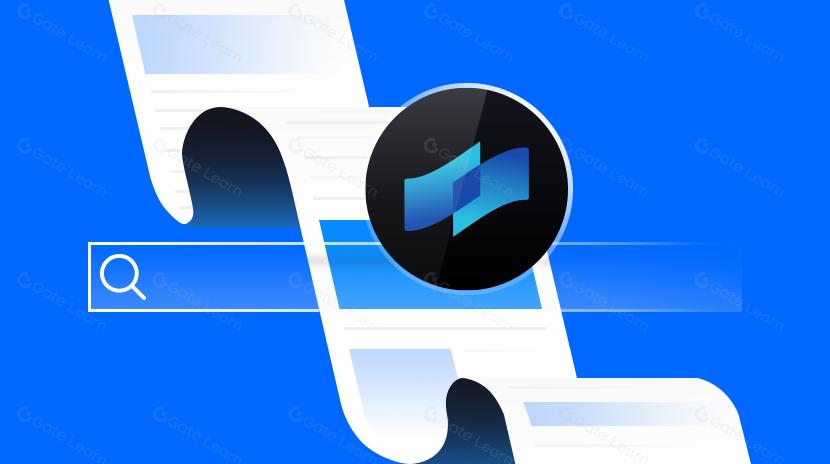Nine Chronicles là gì? Tất cả những gì bạn cần biết về WNCG
Các trò chơi nhập vai (RPG) dựa trên blockchain đang thu hút sự chú ý khi họ tích hợp sở hữu phi tập trung và cơ chế chơi để kiếm, cho phép người chơi sở hữu tài sản trong game và tham gia vào nền kinh tế token. Mặc dù những trò chơi này hứa hẹn một mức độ tương tác mới, thành công của chúng phụ thuộc vào sự quan tâm kéo dài của người chơi, cơ chế game cân bằng và một hệ sinh thái phát triển mạnh mẽ. Nhiều dự án cung cấp môi trường mã nguồn mở, tích hợp NFT và quản trị theo cộng đồng, nhưng sự cạnh tranh vẫn rất gay gắt trong không gian chơi game Web3. Nine Chronicles tuân theo mô hình này, cung cấp một RPG mã nguồn mở phi tập trung nơi người chơi có thể chế tạo, giao dịch và chiến đấu trong một nền kinh tế được cung cấp bởi blockchain.
Nine Chronicles (WNCG) là gì?
Nine Chronicles được thành lập như một trò chơi nhập vai toàn diện phi tập trung dựa trên công nghệ blockchain nguồn mở. Dự án được khởi đầu bởi Planetarium Labs, với sự phát triển được dẫn dắt bởi Nine Corporation. Mục tiêu của dự án là tạo ra một hệ sinh thái game thuộc sở hữu của người chơi, nơi người dùng có thể tham gia vào quản trị, giao dịch tài sản một cách tự do, và tham gia vào cơ chế chơi để kiếm.
Vào năm 2020, Nine Chronicles đã bắt đầu đảm bảo nguồn vốn và đối tác để hỗ trợ sự phát triển của mình. Vào tháng 7 năm 2020, họ đã hợp tác với Ubisoft và Hashed, nhận được sự hỗ trợ trong việc phát triển hệ sinh thái và kinh tế token trong game. Sau đó, vào cuối năm đó, mainnet của Nine Chronicles được ra mắt vào Quý 4 năm 2020, đánh dấu một bước quan trọng trong việc tạo ra một RPG hoàn toàn phi tập trung.
Đến năm 2021, tựa game đã thấy sự tăng trưởng DAU lên đến 850% trong Q2, với các game thủ tạo ra hơn 500.000 NFT. Vào tháng 8 năm 2021, Nine Chronicles đã huy động được 2,6 triệu đô la trong một vòng tăng trưởng do Animoca Brands dẫn đầu, với sự tham gia của Divergence Ventures, IDEO CoLab, và Hypersphere Ventures. Quy mô quỹ này đã giúp tựa game cải thiện nền kinh tế token và mở rộng cộng đồng của mình. Wrapped NCG (WNCG) đã được giới thiệu, ra mắt một IDO trên MISO vào ngày 10 tháng 8 và giao dịch trên SushiSwap vào ngày 17 tháng 8.
Vào tháng 1 năm 2022, Binance Labs đã đầu tư một cách chiến lược vào Nine Chronicles, cung cấp nguồn vốn bổ sung để phát triển một ứng dụng di động, quản trị DAO cho các hội và tính năng gameplay hợp tác. Đối tác này cũng dẫn đến tích hợp BNB Chain và hợp tác NFT độc quyền trên Binance NFT Marketplace.
Suốt năm 2022 và 2023, Nine Chronicles tiếp tục mở rộng các nỗ lực phân quyền của mình, chuyển đổi sang mô hình Proof-of-Stake (PoS) trong khi giới thiệu các cải tiến về nền kinh tế trò chơi, các mùa đấu PvP, tính năng stake, và một hệ thống bang mới. Dự án cũng ra mắt Nine Chronicles M, một phiên bản trò chơi di động, và giới thiệu NFT staking và quản trị.
Đến năm 2024, Nine Chronicles đã khẳng định mình là một trò chơi nhập vai Web3 do cộng đồng điều hành, liên tục phát triển thông qua phản hồi từ người chơi, các đối tác và việc cải thiện blockchain. Vào đầu năm 2025, có vẻ như trò chơi vẫn tiếp tục đẩy mạnh với việc mở rộng nội dung, cải thiện quản trị phi tập trung và cải thiện cơ sở hạ tầng blockchain để duy trì sự tham gia của người chơi trong dài hạn.
Làm thế nào để Nine Chronicles hoạt động? Lối chơi và Blockchain
Nine Chronicles là một trò chơi RPG hoàn toàn phi tập trung trong đó người chơi tham gia vào một thế giới tiến hóa được hình thành bởi một nền kinh tế và hệ thống quản trị do người chơi điều khiển. Trò chơi được cung cấp bởi công nghệ blockchain, đảm bảo quyền sở hữu tài sản thực qua NFT và cho phép người chơi chế tạo, giao dịch và cạnh tranh mà không bị hạn chế tập trung. Nó có trải nghiệm gameplay đa chiều, bao gồm Chế Độ Phiêu Lưu, Đấu Trường PvP, đột kích Boss Thế Giới và một nền kinh tế vật phẩm động.

Nguồn: docs.nine-chronicles.com
Chế độ Phiêu lưu
Chế độ Phiêu lưu là vòng lặp gameplay chính, nơi người chơi chiến đấu qua 400 giai đoạn độc đáo trên nhiều thế giới khác nhau. Mỗi thế giới có 50 giai đoạn, với một boss mạnh mẽ ở cấp độ cuối cùng, đòi hỏi người chơi tối ưu hóa trang bị, thống kê và chiến lược của họ. Trò chơi ngày càng tăng độ khó, thúc đẩy người chơi chế tạo trang bị mạnh mẽ hơn và phát triển chiến thuật tốt hơn. Điểm Hành động (AP) được yêu cầu để vào mỗi giai đoạn, hồi phục theo thời gian thông qua Bộ đo Phồn thị, hoặc ngay lập tức thông qua Bình Phù Hợp Hành Động. Người chơi có được kinh nghiệm, thu thập vật liệu chế tạo quý giá và tăng cường nhân vật của họ khi họ tiến bộ.
Sân thi đấu - Đấu trường PvP
Chế độ Arena giới thiệu PvP dựa trên kỹ năng cạnh tranh, nơi người chơi chiến đấu hàng tuần để nhận phần thưởng trong các mùa giải có cấu trúc. Mỗi mùa giải có bảng xếp hạng xếp hạng, với phần thưởng token NCG và NFT độc quyền cho những người chơi hàng đầu. Người chơi kiếm phần thưởng dựa trên huy chương tích lũy, đảm bảo sự tương tác liên tục và làm cho cuộc cạnh tranh trở nên rộng lớn hơn. Cơ chế đặt cược trong Arena cũng cho phép người chơi khóa NCG để nhận thêm phần thưởng, củng cố sự ổn định của nền kinh tế trò chơi đồng thời cung cấp động lực lâu dài cho người tham gia PvP.
Trận đánh Boss Thế giới
Chế độ World Boss là một hệ thống hợp tác đánh Boss, nơi người chơi hợp sức để chiến đấu với một Boss khổng lồ với theo dõi HP toàn cầu. Mỗi mùa kéo dài một tuần, với ba vé chiến đấu hàng ngày, phần thưởng dựa trên xếp hạng, sự tham gia và đóng góp. Người chơi được khuyến khích cạnh tranh và hợp tác, kiếm NCG, phần thưởng cấp độ chiến đấu và thưởng dựa trên xếp hạng.
Hệ thống Boss Phiêu Lưu
Hệ thống Adventure Boss tích hợp một nền kinh tế dựa trên tiền thưởng, cho phép người chơi tài trợ các trận đánh với boss trong khi người khác cạnh tranh để nhận phần thưởng. Người chơi có thể đặt tiền thưởng, đầu tư NCG để mở khóa các cuộc đụng độ, hoặc chiến đấu với các boss, kiếm phần thưởng, điểm và xếp hạng trên bảng xếp hạng. Mô hình này giới thiệu cơ chế trò chơi do người chơi điều khiển, củng cố bản chất phi tập trung của Nine Chronicles.
Hệ thống Thu thập
Hệ thống Bộ sưu tập cho phép người chơi đăng ký các mục cụ thể để mở khóa tăng cường cố định cho các chỉ số. Các mục bao gồm vũ khí, trang phục, thức ăn, nguyên liệu và danh hiệu, tăng cường cho nhân vật với HP bổ sung, sức mạnh tấn công, phòng thủ và tốc độ. Hệ thống này khuyến khích sự tham gia dài hạn, khi người chơi chơi lại các cấp độ trước để thu thập các mục hiếm và tăng cường nhân vật cho nội dung tương lai.
Season Pass và Phần Thưởng Tuần Lính
Season Pass sẽ thưởng cho người chơi với các tài sản trong game độc quyền, mỹ phẩm và thưởng dựa trên kinh nghiệm kiếm được thông qua gameplay. Người chơi có thể tiến bộ qua các cấp độ, mở khóa phần thưởng ở mỗi cấp độ, với phiên bản Premium+ cung cấp lợi ích tiến bộ ngay lập tức.
Hệ thống Phần Thưởng Tuần Tra cho phép tiến độ rảnh rỗi, cho phép người chơi kiếm được tài nguyên ngay cả khi offline. Điều này đảm bảo sự tương tác liên tục trong khi thưởng cho sự tham gia tích cực và thụ động, tạo ra một nền kinh tế game bền vững.
Cơ chế Thời gian & Khối
Nine Chronicles hoạt động trên hệ thống thời gian dựa trên khối, nơi việc làm mới khu vực, chế tạo và nâng cấp phụ thuộc vào sản xuất khối thay vì thời gian truyền thống. Mỗi khối được tạo ra khoảng mỗi 10 giây, đảm bảo sự kiện trò chơi có thể xác minh và thực hiện phi tập trung.
Các cơ chế chính liên quan đến tiến triển khối. Vé đấu trường làm mới mỗi 2.800 khối (~8 giờ), trong khi mùa đầy đủ kéo dài 112.000 khối (~một tuần). Bộ đo Phồn Thịnh, khôi phục Điểm Hành Động (AP) cho Chế Độ Phiêu Lưu, làm mới mỗi 1.700 khối (~4,5 giờ). Thời gian chế tạo và nâng cấp tăng theo số khối, với Đồng Hồ Cát cho phép người chơi tăng tốc hoàn thành.

Nguồn: docs.nine-chronicles.com
Blockchain
Nine Chronicles được xây dựng để hoạt động độc lập với bất kỳ cơ quan trung ương nào. Không giống như các trò chơi trực tuyến truyền thống phụ thuộc vào máy chủ tập trung, Nine Chronicles hoạt động hoàn toàn trên chuỗi, đảm bảo rằng tất cả các hành động trong trò chơi, giao dịch và hồ sơ sở hữu được lưu trữ và có thể xác minh vĩnh viễn. Sự phi tập trung này cho phép thế giới trò chơi tồn tại miễn là có người chơi, mà không phụ thuộc vào một công ty trò chơi hoặc máy chủ bên ngoài.
Tại lõi của cơ sở hạ tầng phi tập trung này là Libplanet, một thư viện công nghệ sổ cái phân tán (DLT) được thiết kế cho các trò chơi trực tuyến đa người chơi (MMO) ngang hàng. Libplanet cho phép Nine Chronicles lưu trữ dữ liệu trò chơi một cách an toàn trên chuỗi khối, khiến cho tất cả giao dịch trở nên minh bạch, bất biến và chống lại sự kiểm duyệt. Kể từ khi ra mắt mạng chính vào tháng 10 năm 2020, Nine Chronicles đã phát triển đáng kể, xử lý hơn 2.5 triệu trận chiến trên chuỗi, tạo ra hơn 1 triệu NFT và tạo điều kiện cho hơn 80,000 giao dịch NFT.
Một trong những đặc điểm nổi bật của Nine Chronicles là kiến trúc hoàn toàn trên chuỗi, đảm bảo rằng tất cả dữ liệu, bao gồm tiến trình trò chơi, nền kinh tế và tài sản, được ghi nhận dưới dạng giao dịch blockchain. Điều này đảm bảo một hệ thống công bằng có thể chứng minh nơi người chơi có thể xác minh mọi hành động và đảm bảo tính toàn vẹn của trò chơi. Người xác minh trong mạng lưới xử lý các giao dịch và bảo vệ hệ thống, với mạng lưới trò chơi hoạt động độc lập như một blockchain Layer 1 không phụ thuộc vào Ethereum hoặc các blockchain khác để xác minh.

Nguồn: gold.nine-chronicles.com
Nine Chronicles hỗ trợ các cầu nối blockchain để tăng cường khả năng tương tác, cho phép người chơi chuyển đổi tài sản giữa Ethereum và các mạng blockchain khác. Điều này giúp tạo ra tương tác qua chuỗi và cho phép NCG (Nine Chronicles Gold), token bản địa của trò chơi, được giao dịch hoặc sử dụng trong nhiều môi trường blockchain khác nhau.
Ngoài ra, Nine Chronicles được thiết kế để thân thiện với việc modding, cho phép người chơi và nhà phát triển tạo ra các sửa đổi trò chơi tùy chỉnh. Các công cụ như Mimir (dịch vụ truy vấn dựa trên GraphQL) và Chrono (một tiện ích mở rộng trình duyệt giống như MetaMask để ký giao dịch) cho phép tương tác mượt mà với blockchain, trang bị người dùng sức mạnh để xây dựng và tích hợp cơ chế, vật phẩm và tính năng mới vào hệ sinh thái.
Về mặt kinh tế, NCG đóng vai trò quan trọng trong Nine Chronicles. Trong khi trò chơi là miễn phí, NCG trở nên ngày càng quan trọng khi người chơi tiến bộ. Nó được sử dụng để chế tác, giao dịch, tăng tốc tiến trình trong trò chơi, đặt cược và quản trị. Người chơi có thể kiếm phần thưởng thông qua việc đặt cược, nhận các vật phẩm độc đáo trong trò chơi hoặc lưu thông tài sản để thu lợi. Thiết kế này hỗ trợ một nền kinh tế trong trò chơi tự nhiên, nơi mà người chơi đóng góp cho hệ sinh thái và đồng thời hưởng lợi từ việc sở hữu và tiền hóa tài sản của họ.
Các Trường Hợp Sử Dụng Của Nine Chronicles
Khác với các trò chơi truyền thống phụ thuộc vào máy chủ tập trung, Nine Chronicles hoạt động hoàn toàn trên chuỗi, cho phép người dùng hoàn toàn kiểm soát các mặt hàng và tương tác trong trò chơi của họ. Nền kinh tế do người chơi điều khiển, mô hình quản trị và quyền sở hữu tài sản được hỗ trợ bởi blockchain giúp nó nổi bật trong không gian chơi game Web3. Dưới đây là ba trường hợp sử dụng chính:
- Sở Hữu Tài Sản Thật & Nền Kinh Tế NFT: Mọi vật phẩm trong trò chơi, từ vũ khí đến vật liệu, được đại diện dưới dạng Token Không Thể Trao Đổi (NFT). Điều này có nghĩa là người chơi thực sự sở hữu tài sản của mình, mà họ có thể giao dịch, bán hoặc sử dụng mà không bị hạn chế. Các vật phẩm được lưu trữ vĩnh viễn trên chuỗi, đảm bảo tính minh bạch và an ninh. Người chơi cũng có thể chế tạo và nâng cấp vật phẩm, tăng giá trị và nhu cầu trong nền kinh tế trong trò chơi.
- Chơi để Kiếm & Nhận Thưởng Staking: Nine Chronicles cho phép người chơi kiếm thưởng thông qua các hoạt động khác nhau như PvE, PvP battles, và staking. Nine Chronicles Gold (NCG), token native của trò chơi, được sử dụng cho các giao dịch trong game, chế tạo và staking. Người chơi stake NCG của họ có thể nhận được các vật phẩm độc quyền, bình thuốc và thưởng, góp phần vào sự bền vững của hệ sinh thái trong khi kiếm thu nhập passively.
- Quản trị phi tập trung & Mod: Là một trò chơi hoàn toàn phi tập trung, Nine Chronicles cho phép cộng đồng của mình ảnh hưởng đến quyết định phát triển. Thông qua mô hình quản trị của mình, người chơi có thể bỏ phiếu cho các đề xuất, đề xuất cập nhật trò chơi, và thậm chí tạo ra các mods bằng cách sử dụng các công cụ mã nguồn mở. Điều này đảm bảo một trải nghiệm chơi game liên tục tiến triển được hình thành bởi người dùng của mình thay vì một cơ quan tập trung.
Các tính năng chính của Nine Chronicles
Nine Chronicles tích hợp công nghệ blockchain để cung cấp trải nghiệm chơi game phi tập trung, do người chơi điều khiển. Từ nền kinh tế trong game độc đáo đến tài sản được hỗ trợ bởi NFT, trò chơi đảm bảo rằng người chơi hoàn toàn sở hữu tiến triển và đóng góp của mình. Dưới đây là các tính năng chính xác định hệ sinh thái của nó.
Nền kinh tế phi tập trung & Thị trường do người chơi điều khiển
Nine Chronicles hoạt động trong một nền kinh tế hoàn toàn phi tập trung, nơi người chơi kiếm được, giao dịch và chế tạo các vật phẩm mà không bị hạn chế. Mọi vật phẩm trong trò chơi tồn tại dưới dạng NFT, đảm bảo quyền sở hữu đầy đủ và khả năng mua, bán hoặc nâng cấp tài sản trên thị trường mở. Thị trường trong trò chơi cho phép giao dịch ngang hàng, trong khi hệ thống đặt cược cho phép người chơi kiếm được phần thưởng theo thời gian. Token của trò chơi, Nine Chronicles Gold (NCG), thúc đẩy hệ sinh thái bằng cách tạo điều kiện cho các giao dịch, khuyến khích việc đặt cược và tạo điều kiện cho sự cạnh tranh. Cho dù chế tạo trang bị, tăng tốc nâng cấp, hay tham gia vào các trận chiến PvP, NCG đóng vai trò quan trọng trong việc thưởng cho người chơi vì sự tham gia kinh tế của họ.
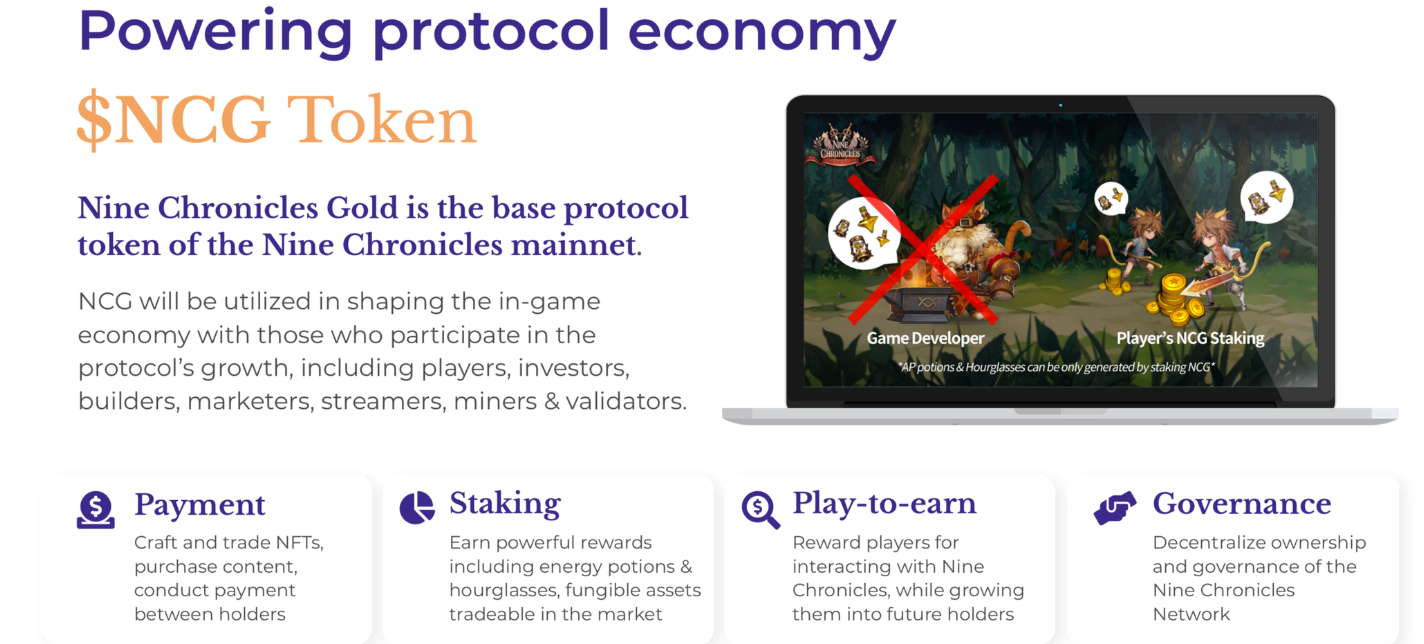
Nguồn: gold.nine-chronicles.com
Hệ Thống Cửa Hàng Tiên Tiến & Nền Kinh Tế Đa Nền Tảng
Hệ thống cửa hàng là một thành phần cốt lõi của Nine Chronicles, cung cấp một thị trường nơi người chơi có thể giao dịch tài nguyên, mua các phần thưởng sức mạnh và có được các mặt hàng thiết yếu. Trên PC, thị trường sử dụng NCG, cho phép người chơi tham gia giao dịch phi tập trung. Trên di động, trò chơi tích hợp giao dịch bằng fiat, cho phép người chơi mua các gói trò chơi và hàng tiêu dùng thông qua mua sắm trong ứng dụng. Phương pháp đa nền tảng này nối liền nền kinh tế trong trò chơi với các giao dịch thực tế, phục vụ cho các loại người chơi khác nhau. Bằng cách cân nhắc cả hai mô hình phi tập trung và truyền thống, trò chơi tạo ra một nền kinh tế bao hàm trong khi duy trì một hệ sinh thái tài chính do người chơi điều hành.

Nguồn: docs.nine-chronicles.com
Mặt hàng dựa trên NFT & Tùy chỉnh
Nine Chronicles tích hợp NFT cho tất cả tài sản trong game, đảm bảo sở hữu thực sự với vũ khí, áo giáp, vật tư và phụ kiện. Người chơi có thể chế tạo và nâng cấp vật phẩm, giao dịch chúng trên thị trường và sử dụng chúng một cách chiến lược trong các trận đấu. Các mặt hàng trang bị mang lại lợi thế chiến đấu, trong khi Runes, Costumes và Titles cung cấp tính cá nhân hóa và các phúc lợi bổ sung. Hệ thống Grimoire giới thiệu trang bị ma thuật với khả năng chuyên biệt, trong khi Hệ thống Bộ sưu tập thưởng cho người chơi khi tích luỹ các mặt hàng hiếm. Hệ thống kho báu động này nâng cao trải nghiệm chơi game, cung cấp chiều sâu chiến lược và cơ hội kinh tế cho người chơi tham gia giao dịch và chế tạo.

Nguồn: docs.nine-chronicles.com
D:CC Nine Chronicles PFP
D:CC (De:Centralized Cat) là dự án NFT đầu tiên của Nine Chronicles, cung cấp 3.000 hình ảnh hồ sơ NFT độc đáo có thể phục vụ cả làm hình đại diện và trang phục trong game. Những NFT này cho phép người chơi tùy chỉnh nhân vật của họ, tham gia vào các trận đấu, và giao dịch tài sản trong hệ sinh thái của trò chơi.
Hệ thống D:CC Staking thưởng cho người giữ DCCM (D:CC Mileage Token) và WNCG, cho phép họ mua các mặt hàng độc quyền trong Cửa hàng Mileage. Staking được chia thành Staking Tổng quát và Staking Bộ sưu tập, với phần thưởng cao hơn cho những người hoàn thành các bộ sưu tập cụ thể. Giới hạn phát hành DCCM là 100 triệu mỗi năm, đảm bảo nguồn cung kiểm soát trong mười năm.
D:CC NFTs nâng cao nền kinh tế phi tập trung của Nine Chronicles, cho phép giao dịch trên OpenSea và cung cấp các quyền lợi độc quyền trong game. Người giữ NFT hưởng lợi từ việc sở hữu dựa trên NFT, thưởng staking, và tích hợp vào vũ trụ Nine Chronicles, củng cố hệ sinh thái do người chơi tạo ra thông qua tùy chỉnh, tính khan hiếm, và sự tương tác.

Nguồn: docs.nine-chronicles.com
What is the WNCG Coin?
WNCG là một token ERC-20 được hỗ trợ 1:1 bởi NCG, kết hợp sức mạnh của NCG với sự linh hoạt của ERC-20. Tổng cung cấp tối đa là 1 tỷ đơn vị, trong đó có 458 triệu (45,8%) đã được phát hành (tháng 3 năm 2025).
WNCG, hoặc Wrapped Nine Chronicles Gold, là một token ERC-20 mang lại tiện ích của Nine Chronicles Gold (NCG) cho hệ sinh thái Ethereum. Là phiên bản được bọc 1:1 của NCG, nó cho phép giao dịch mượt mà trên sàn giao dịch phi tập trung và tập trung, cung cấp thanh khoản và khả năng tiếp cận lớn hơn ngoài blockchain native của trò chơi. NCG phục vụ như là đồng tiền cốt lõi trong Nine Chronicles, một trò chơi nhập vai phi tập trung nơi người chơi có thể chế tạo vật phẩm, giao dịch trên thị trường, tham gia vào các trận đấu và tham gia vào nền kinh tế của trò chơi mà không tốn phí ban đầu. Nền kinh tế Nine Chronicles được thiết kế để hoạt động độc lập, cho phép người chơi thực sự sở hữu đầy đủ tài sản trong trò chơi của họ. Giá trị của các vật phẩm và tiền tệ phụ thuộc hoàn toàn vào cung và cầu, đảm bảo một hệ sinh thái bền vững bất kể có sự gia nhập của người chơi mới. Khi người chơi tiến bộ trong trò chơi, NCG trở nên ngày càng quan trọng để chế tạo các vật phẩm tiên tiến, giao dịch tài sản có giá trị và đặt cược để nhận phần thưởng độc quyền. Người chơi có thể đặt cược NCG của họ để kiếm AP potions, đồng hồ cát, và các vật phẩm tiêu hao khác, có thể sử dụng trong trò chơi hoặc bán cho người khác.
Mặc dù NCG không thể được mua trực tiếp từ sàn giao dịch, người chơi có thể có được WNCG thông qua các nền tảng như Gate.com. Một khi đã có được, WNCG có thể được đổi lấy NCG thông qua Cổng Nine Chronicles, cho phép người chơi tích hợp nắm giữ của họ vào trò chơi. Quá trình chuyển đổi hoạt động cả hai chiều, cho phép người chơi chuyển nhượng thu nhập trong trò chơi của họ trở lại hệ sinh thái Ethereum bằng cách đổi NCG lấy WNCG. Tuy nhiên, tồn tại một số giới hạn nhất định, chẳng hạn như việc chuyển đổi hàng ngày tối đa 5.000 NCG và yêu cầu chuyển nhượng tối thiểu là 100 NCG, với một khoản phí cầu nối 1% được áp dụng. Phân phối của NCG tuân theo một mô hình cấu trúc, với 25% được phân bổ cho phần thưởng khai thác, 25% cho phần thưởng nội dung, và 25% được gán cho quỹ. Cung cấp còn lại được chia thành các bán hàng công cộng đang diễn ra, động cơ kích hoạt, bán hàng riêng tư, dự trữ, và các đối tác.

Nguồn: docs.nine-chronicles.com
Mô hình đặt cược trong Nine Chronicles cung cấp các lợi ích bổ sung cho người chơi lâu dài, với tính năng Monster Collection cho phép người dùng khóa NCG của mình trong một tháng để đổi lấy phần thưởng hàng tuần. Các chủ sở hữu WNCG cũng có thể tham gia vào việc đặt cược thanh khoản thông qua hồ WNCG-WETH của Balancer, kiếm được phần thưởng WNCG và BAL.
Có nên đầu tư vào WNCG không?
WNCG cung cấp tiện ích mạnh mẽ bằng cách nối Nine Chronicles Gold (NCG) với hệ sinh thái Ethereum, tạo ra tính thanh khoản và sự tiếp cận cho một nền kinh tế game phi tập trung. Việc tích hợp với các nền tảng DeFi tăng cường tính sử dụng và phạm vi thị trường. Tuy nhiên, sự phụ thuộc của dự án vào cộng đồng người chơi Nine Chronicles đặt ra một rủi ro - nếu trò chơi không duy trì sự tham gia hoặc việc áp dụng giảm đi, giá trị của WNCG có thể bị ảnh hưởng. Mặc dù ý tưởng của nó rất chặt chẽ, thành công dài hạn phụ thuộc vào sự quan tâm của người chơi duy trì và sự áp dụng game blockchain rộng rãi hơn.
Làm thế nào để sở hữu WNCG?
Để sở hữu WNCG, bạn có thể sử dụng dịch vụ của một sàn giao dịch tiền điện tử tập trung. Bắt đầu bằng cách tạo tài khoản Gate.comvà xác minh và tài trợ nó. Sau đó, bạn sẵn sàng để tiến hành các bước để mua WNCG.
Tin tức về WNCG
Được báo cáo vào ngày 24 tháng 2 năm 2025 trên Medium, Nine Chronicles đã giới thiệu Bộ Sưu Tập Arena Revenge, kỷ niệm mùa Arena cuối cùng của Thor Chain. Có sẵn đến ngày 13 tháng 3 năm 2025, các gói chiến đấu tạm thời này cung cấp tài nguyên mạnh mẽ trong game. Bộ Sưu Tập Arena Revenge I ($12.99) bao gồm 400 Ruby Dust và 250 Thor Golden Seed Runes (tối đa 2 cho mỗi tài khoản), trong khi Bộ Sưu Tập Arena Revenge II ($29.99) có 400 Emerald Dust và 600 Golden Dust (tối đa 1 cho mỗi tài khoản). Các mặt hàng độc quyền này có thể trở lại trong các đợt bán hàng tương lai.
Hành động trên WNCG
Kiểm traGiá WNCG hôm nay, và bắt đầu giao dịch các cặp tiền tệ yêu thích của bạn.
Bài viết liên quan
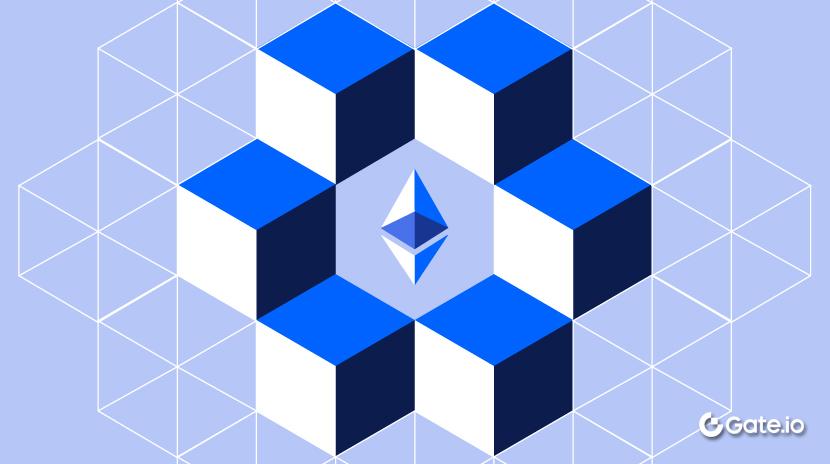
Cách đặt cược ETH?
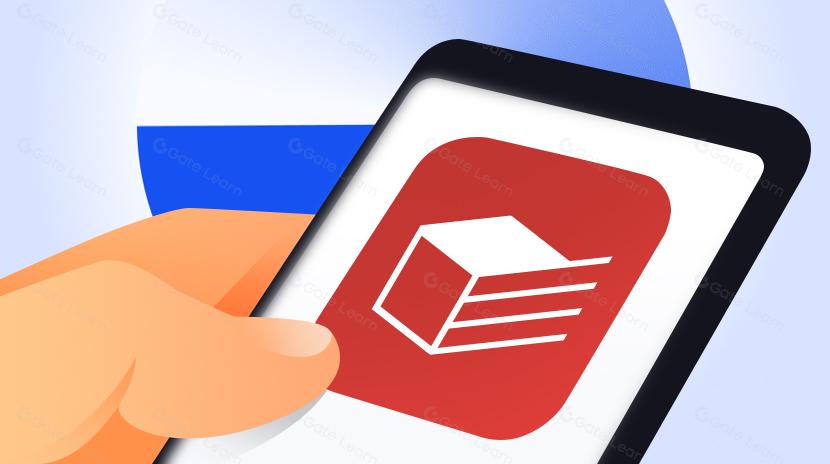
Tronscan là gì và Bạn có thể sử dụng nó như thế nào vào năm 2025?

GateToken (GT) là gì?
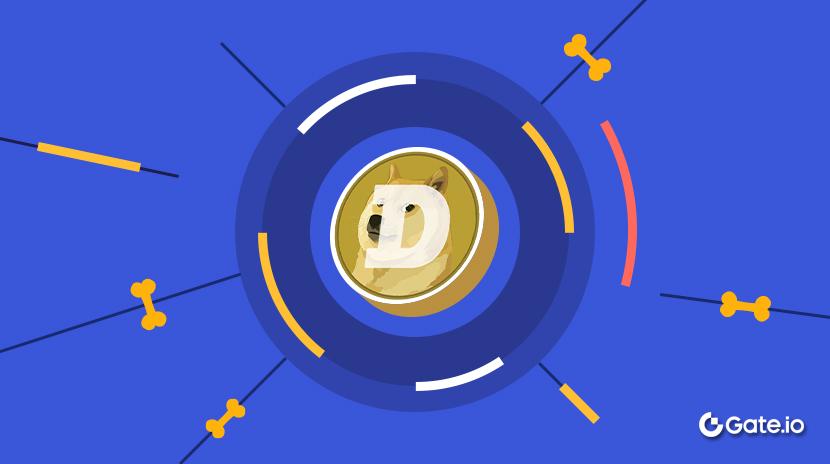
Dogecoin là gì?
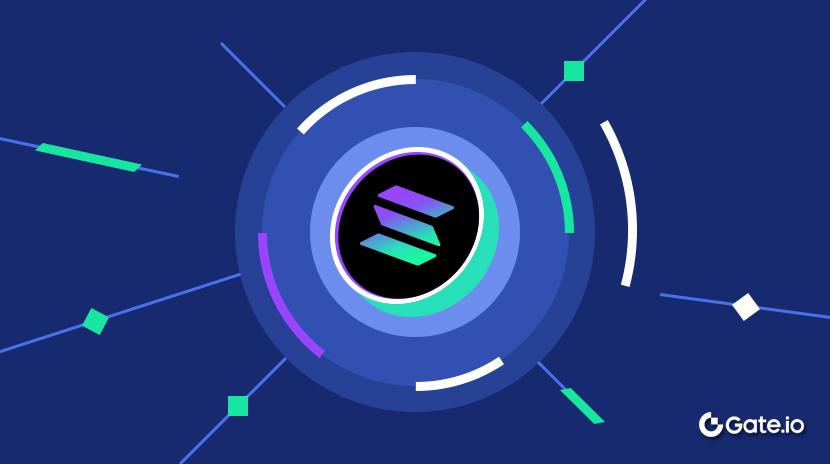
Solana là gì?
